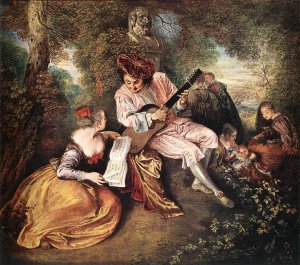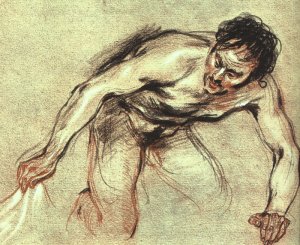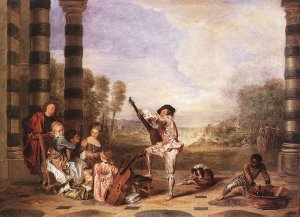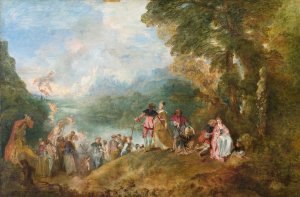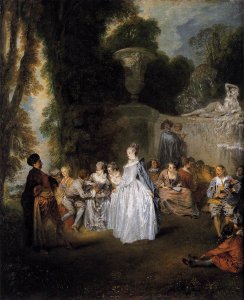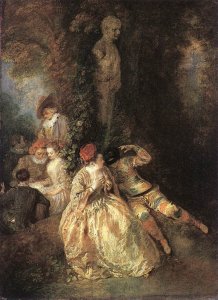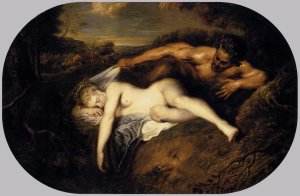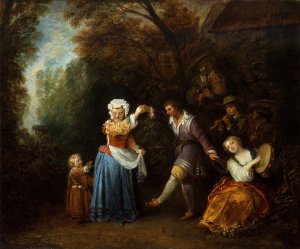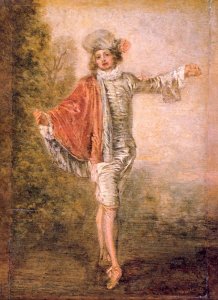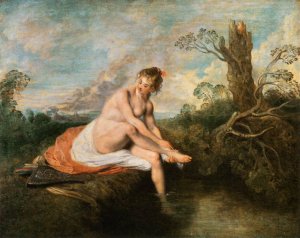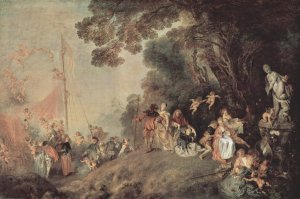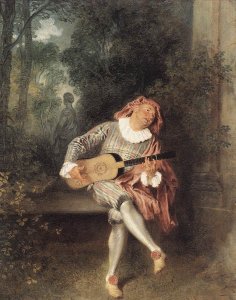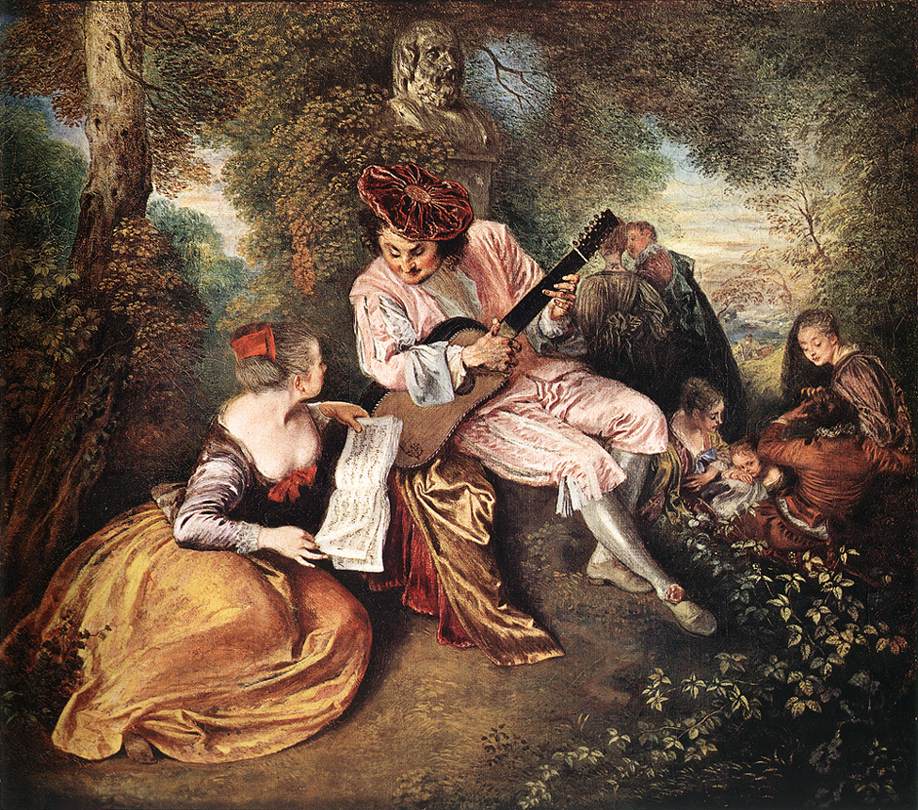
Jean-Antoine Watteau
(October 10, 1684 - July 18, 1721)
Jean-Antoine Watteau (October 10, 1684 - July 18, 1721) was a French painter whose brief career spurred the revival of interest in colour and movement (in the tradition of Correggio and Rubens), and revitalized the waning Baroque idiom, which eventually became known as Rococo. He is credited with inventing the genre of fêtes galantes: scenes of bucolic and idyllic charm, suffused with an air of theatricality. Some of his best known subjects were drawn from the world of Italian comedy and ballet.
Watteau was born in the Flemish town of Valenciennes, which had just been annexed by the French king Louis XIV. His father was a master tiler of Flemish descent. Showing an early interest in painting, he was apprenticed to Jacques-Albert Gérin, a local painter. Having little to learn from Gérin, Watteau left for Paris in about 1702. There he found employment in a workshop at Pont Notre-Dame, making copies of popular genre paintings in the Flemish and Dutch tradition; it was in that period that he developed his characteristic sketchlike technique.





